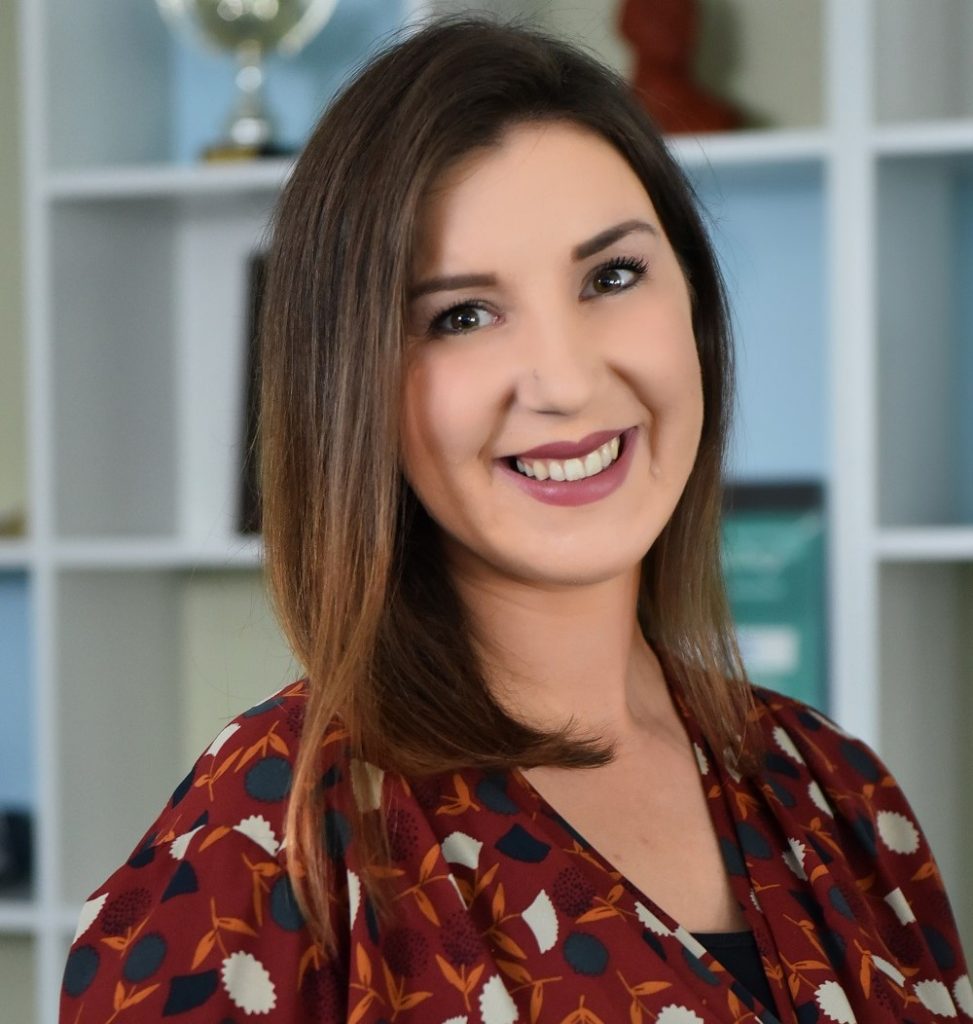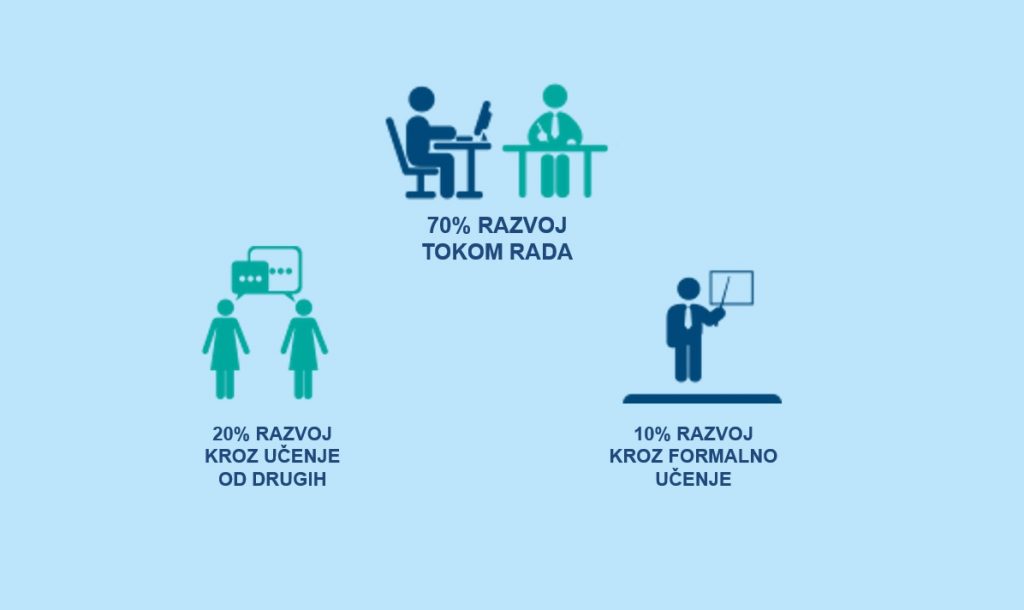By Danijela Pankas, Training and Development Expert, Erste Bank
According to the concept 70-20-10, 70% of our professional development occurs in the workplace, 20% through learning from other people, and 10% through formal education. Therefore, proactivity and personal initiative are highly important for the development of each of us

One cannot help but notice that the coronavirus pandemic had an impact not only the health, social and economic aspects of life, but also the professional development of each of us. Caring for the health of our loved ones and our own health has become the primary occupation. Although a number of online courses were available, in the moments of uncertainty and new information on what surrounds us, it goes without saying that we did not have enough time and opportunities to dedicate to these courses and work on professional development in such a way.
Although professional development within the company is often deemed responsibility of the Human Resources Service, or sometimes of our superiors, there is always room for personal initiative on this topic. What if I told you that precisely you, every single one of you, can work on development, with great support, help and advice from others? Yes, it is a responsibility of the Human Resources Service, but also of every employee.
According to this concept, 70% of development occurs during the performance of business activities
Do you know that formal education constitutes 10% of our development?
Most people associate development with numerous formal training, seminars, education programs, conferences or tests. However, not everything has to be formal when it comes to development. For this very reason, we believe in the 70-20-10 concept at Erste Bank.
According to this concept, 70% of development occurs during the performance of business activities. No matter if you are a beginner or in a higher position, possibilities for advancement in the workplace are plenty.

Be it the extension of tasks to the ones not performed so far, engagement in challenging projects, or creation and implementation of something completely new, opportunities for progress always open up. Opportunities for advancement also arise during temporary or permanent rotation to a different position, either within the unit or outside of it, as well as at the meetings where new information and inspiration can be gained.
Have you experienced any of these without seeing it as an opportunity for development? How many times did you find it difficult to engage in something new, but which did eventually influence your growth and development of a new skill, competence, or personal characteristic?
In accordance with the 70-20-10 concept, the remaining 20% of the development of each employee refers to the so-called “near the job” tasks. This aspect refers to mentoring and coaching, but also to independent knowledge acquisition (books, articles, and tutorials). These activities do not refer to the formal mentoring function within the company, but to the connection with colleagues who can contribute to your development and advancement through personal experience and knowledge. It refers to superiors or colleagues who pose questions such as: “What do you think?” or “How would you do it?” These questions encourage you to reach your own conclusions and insights, and concrete instruction on how something is done has an impact on you and your development.
As mentioned before, the last step within this concept is formal education, which represents 10% of the employee development.
Find a mentor among your colleagues or someone you will mentor (your mentee), why not? In both cases, you will definitely have an opportunity to learn something new
Be proactive and curious
To influence self-development, feel free to ask your superiors and colleagues to show you how to perform a particular job aspect which may not be your responsibility at the time. Schedule a meeting with them on the topic you are interested in, and you may become engaged in the project you find appealing.
If your mentor is not used to devoting more time to you and working individually with you or has not shown initiative for it so far, feel free to invite him/her to “one-on-one” meetings and prepare concrete topics you would like to discuss. Find a mentor among your colleagues or someone you will mentor (your mentee), why not? In both cases, you will definitely have an opportunity to learn something new.
We at Erste Bank precisely strive to encourage proactivity and development of our colleagues. Each employee has an opportunity to create his or her own development plan. This process is a personal initiative, and it is not mandatory. We also invite colleagues who found training outside the bank which aligns with their interests to consult their superiors and contact the Human Resources Service, so that attendance at the training may be granted to them.
Although formal education constitutes 10% of development, we are very engaged in this development segment. For example, new employees are provided with the onboarding welcome program, as well as comprehensive training for work in branches. Colleagues have the opportunity for advancement through the use of e-learning tools, as well as through attendance at numerous professional development training within the bank and Erste Group, which are led either by our experts or external partners. Younger colleagues who are recognized as talents are awarded the opportunity to work and study for a year and a half in the Erste Group member countries, and the ones who become managers for the first time are provided with the managerial skills learning program. To learn more about what we offer our employees, please watch this video.
However, personal desire and initiative are most important of all, and they are crucial for the personal development of each of us.